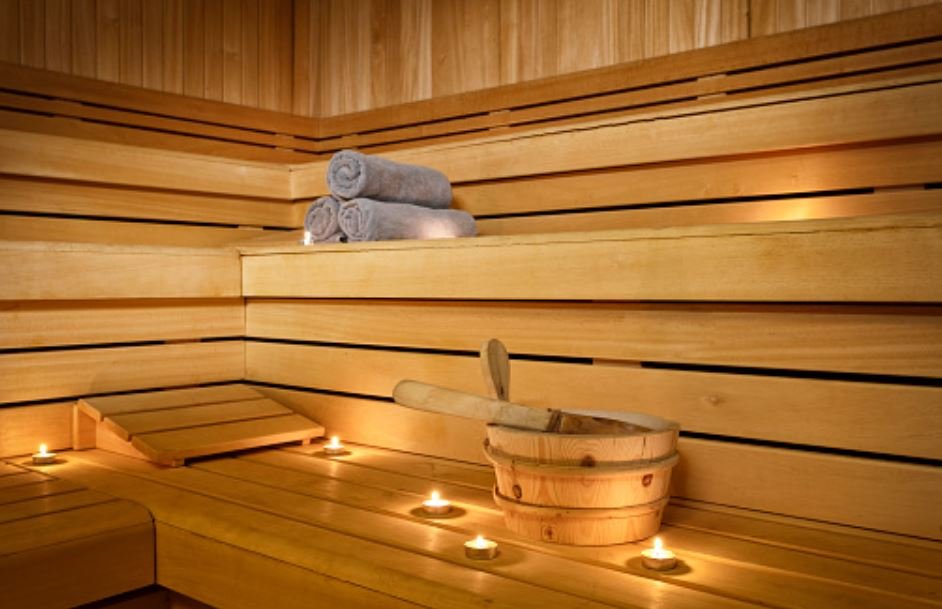
For years, people have talked about whether hot water baths or cold water tubs are better. Both types of baths have their own pros and cons, and choosing between them often comes down to personal taste and specific needs. In this piece, we’ll talk about the health benefits of both hot and cold water baths, the science behind how they work, and how to decide which is best for you.
Benefits of Hot Water Bath
Physical Benefits
Relieves Muscle Tension
Hot water baths are well-known for easing muscle strain and pain. The heat helps loosen up tight muscles, which makes it a great treatment for people who work out hard or have pain that doesn’t go away.
Improves Blood Circulation
The warmth of the water causes the blood vessels to widen, which makes the blood flow faster. This better circulation can help muscles heal and help people with conditions like arthritis and fibromyalgia feel better.
Mental Benefits
Reduces Stress
Hot water baths can help to reduce stress and anxiety. The warmth and comfort of the water can create a sense of relaxation and calmness, helping to alleviate the pressures of daily life.
Promotes Better Sleep
Taking a bath in hot water before bed can help you sleep better. The slow drop in body temperature after a rise in body temperature can tell the body it’s time to sleep, making it easier to fall asleep and stay asleep.
Read more: How to Lose Neck Fat: Easy Steps and Techniques
Benefits of Cold Water Bath
Physical Benefits
Boosts Immune System
Cold water baths have been shown to stimulate the immune system, increasing the production of white blood cells. This can help the body to fight off infections and illnesses more effectively.
Enhances Skin Appearance
By closing the pores and making the skin less puffy, cold water baths can make the skin look better. The cold water also helps to get more blood flowing, which can make your skin look more alive and healthy.
Mental Benefits
Increases Alertness
A cold water bath can increase alertness and mental clarity. The shock of the cold water can stimulate the release of adrenaline, which can help to sharpen focus and improve overall cognitive function.
Boosts Mood
Cold water baths can help to improve mood by triggering the release of endorphins, the body’s natural “feel-good” chemicals. These endorphins can help to reduce stress, alleviate depression, and promote a sense of well-being.
The Science Behind Water Temperature
The temperature of the water can have a big effect on how the body works. Vasodilation is the widening of blood vessels, which is what hot water does. Vasoconstriction is the tightening of blood vessels, which is what cold water does. Because hot and cold water has different effects on circulation, they can have different physical and mental effects.
How to Choose Between Hot and Cold Water Bath
Personal Preferences
Whether you take a hot water bath or a cold water bath depends a lot on how you feel. Some people find the warmth of a hot water bath more comfortable, while others like how a cold water bath wakes them up and makes them feel refreshed.
Health Conditions
Depending on your health, a hot water bath or a cold water bath may be better. For example, people with arthritis or constant pain might feel better after a hot water bath, while people who are prone to inflammation might feel better after a cold water bath.
Weather Conditions
You might also choose between hot and cold water baths based on the weather. On a cold day, you might want a hot water bath to warm up and rest, but a cold water bath can be refreshing and energizing on a hot day.
Exercise and Recovery
Athletes and fitness fans may choose between hot water baths and cold water baths depending on how they work out and how they need to heal. Cold water baths can help reduce inflammation and speed up recovery after hard workouts, while hot water baths can help you rest and ease muscle tension.
Read more: Difference Between Steam Room and Sauna Health Benefits of Steam Room
Alternating Hot and Cold Water Baths
Some people switch between hot and cold water baths so they can get the most out of both. This is called “contrast therapy,” and it can help improve blood flow, lower inflammation, and help muscles heal.
Precautions and Tips
Hot Water Precautions
- Avoid overly hot water, as it can cause burns and skin irritation.
- Pregnant women and individuals with certain medical conditions should consult their doctor before taking hot water baths.
Cold Water Precautions
- Gradually expose yourself to cold water to avoid shock to the body.
- People with Raynaud’s disease, asthma, or other medical conditions should consult their doctor before taking cold water baths.
General Tips
- Always listen to your body and adjust the water temperature as needed.
- Ensure a safe and comfortable environment when taking a bath.
Conclusion
Both hot and cold water baths can help your body and mind in different ways. Your tastes, health, and other factors can help you figure out what kind of bath is best for you. If you’re worried about adding hot or cold water baths to your routine, make sure to take the right precautions and talk to a health care expert.
FAQs
-
Can I take a hot water bath every day?
Yes, you can take a hot water bath every day, as long as it’s not too hot and you take the necessary precautions. However, it’s essential to listen to your body and adjust your routine accordingly.
-
How long should a cold water bath last?
A cold water bath can last anywhere between 5 to 20 minutes, depending on personal preference and tolerance. It’s essential to listen to your body and not overdo it.
-
Are there any risks to alternating between hot and cold water baths?
Alternating between hot and cold water baths, which is called “contrast therapy,” is usually safe for healthy people. But if you have any health problems that have been going on for a while, you should talk to your doctor before starting contrast treatment.
-
Can I combine hot and cold water baths in a single session?
Some people do choose to take both a hot and a cold bath at the same time. This is called a difference bath or hydrotherapy. This method involves putting the body in hot water for a certain amount of time and then putting it in cold water for a short time. This is done more than once, and it usually ends with cold water. It is thought to help with blood flow, lower inflammation, and help muscles recover. But it’s important to pay attention to your body and talk to a doctor if you have any worries.
-
Is it better to take a hot or cold water bath after exercising?
Whether you should take a hot water bath or a cold water bath after working out depends on your wants and goals. Cold water baths are often recommended after hard workouts to reduce soreness and help the body heal faster. On the other hand, hot water baths can help relieve stress and relax muscles. Some athletes and exercise fans also take contrast baths, in which they switch between hot and cold water.
Based on: wellhealthorganic.com:which-is-better-hot-water-or-cold-water-bath
Read more: Mole vs Freckle: What’s the Difference?







